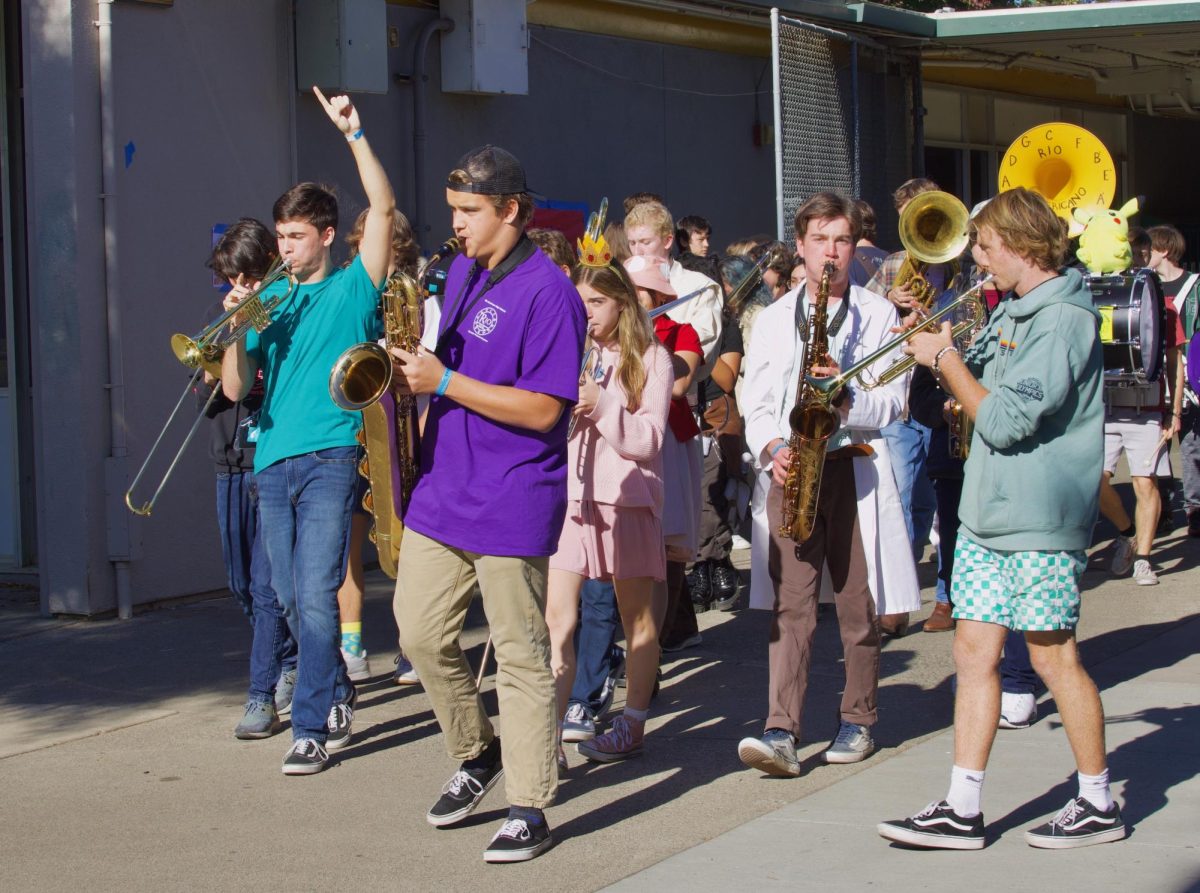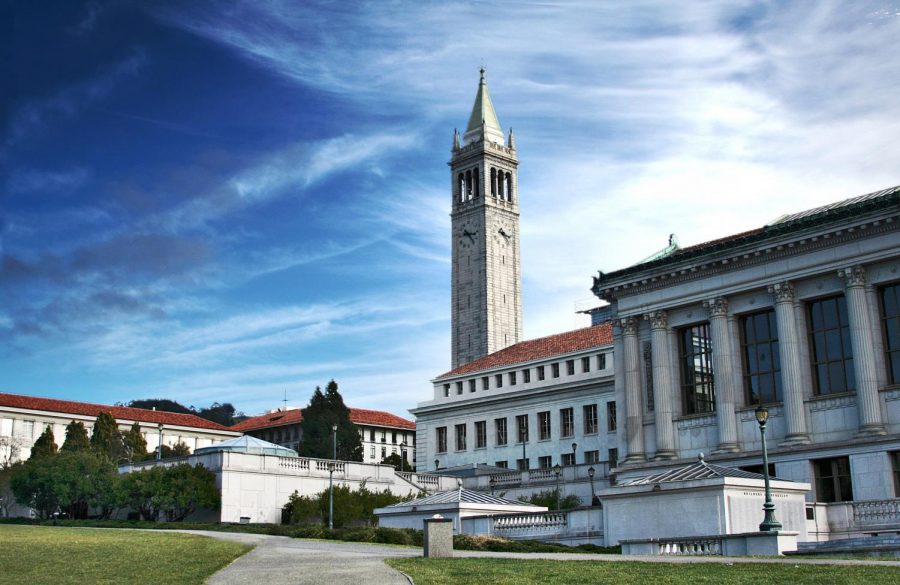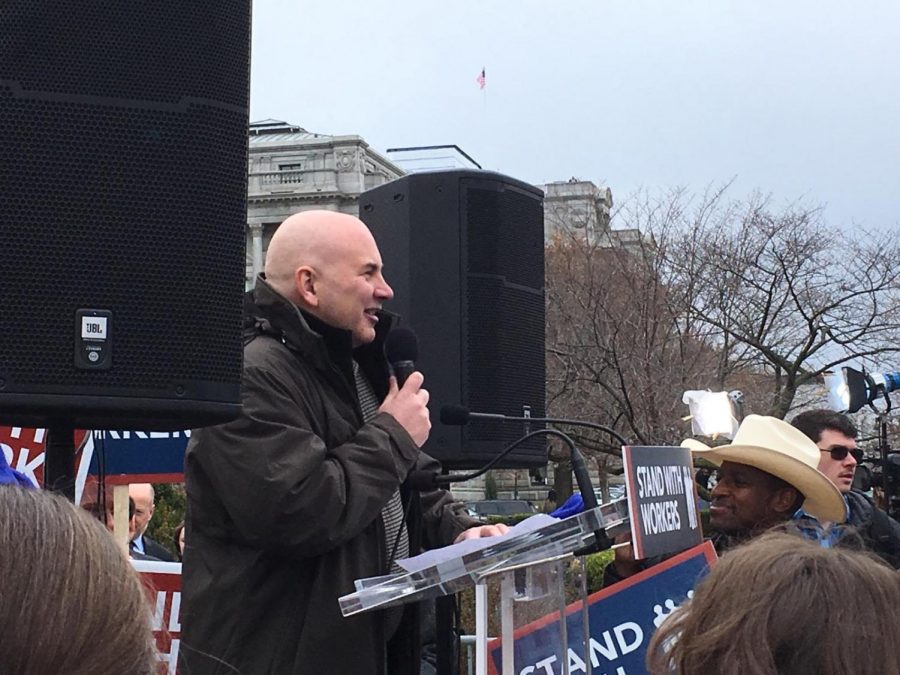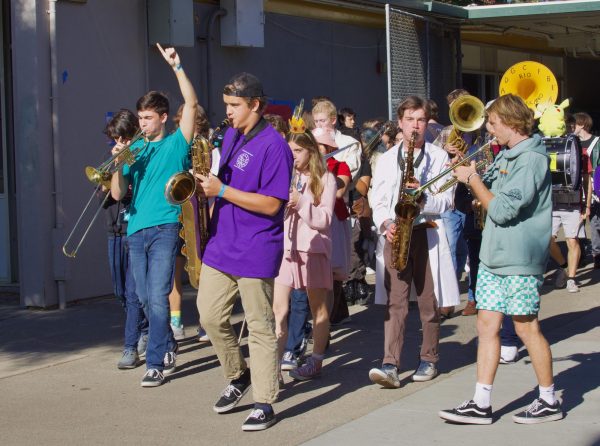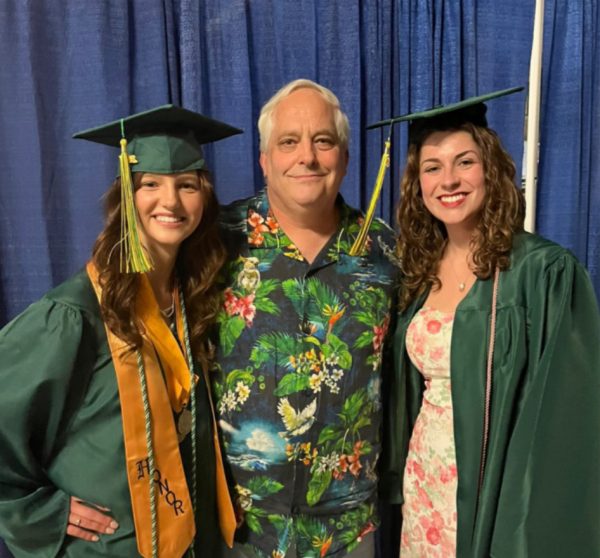Debate Continues Months After Janus Ruling
Four months after the U.S. Supreme Court’s ruling in the Janus case, teachers at Rio and across the state appear to be staying in their unions, even though they are no longer required to pay dues or other fees.
At Rio, however, campus union leaders and a teacher who supported the Janus suit that led to the Supreme Court ruling against public sector unions remain passionate about the topic–and divided about where the ruling will and should lead.
In a 5-4 ruling on July 27, the Supreme Court found for the plaintive Mark Janus that teacher unions can no longer take agency fees or other payments from non members without their consent because it violates the First Amendment regarding freedom of speech and association.
Math teacher, Darren Miller, flew to Washington D.C. last February to speak outside of the Supreme Court in favor of Janus the day justices heard oral arguments in the case.
Spanish teach, Michael Carroll, is a representative of the San Juan Teachers Association and has concerns about potential implications that could arise from this decision: one being problems involving funding for public sector unions.
This decision overturned the Taft Hartley act of 1947, which allowed union security agreements under state laws. Janus overturned this in regards to public sector unions stating that it violates the First Amendment.
The ruling also overturned the 1977 Abood vs. Detroit Board of Education decision that allowed there to be required fees for membership, but it also allowed members to refuse to pay a percentage of fees that would fund political causes.
Created to protect workers, union use collective bargaining voted on by a majority of the members and helps negotiate contracts, defends workers’ rights, determines fair wages. Unions also support political candidates who share their views. However, even before Janus, members could have a share of their dues refunded if they disagreed with the political spending.
“I don’t agree with everything everybody votes for, but I treasure the chance to express my voice,” said Carroll. “Having a voice provides me with an ability I never had in my previous careers.”
Carroll feels that unions are essential to a well-represented workforce.
“This Janus decision is an attempt by wealthy conservative groups to destroy union representation,” said Carroll.
Public sector unions are still required to represent non members who no longer have to pay “agency fees”- money paid to the union by non members in exchange for bargaining services.
Miller described being an agency fee payer as being required to pay for “non-representational costs such as political contributions.”
“Each year I paid full union dues, filed a protest, and the union would admit to about 1/3 of their costs as not relating to my pay, benefits, and working conditions,” said Miller. “They were required (under the Supreme Court’s Abood decision) to refund to me that money which could not be justified as pertaining to union organizing or representing my interests as an employee, and that amount was in the 30-40 percent range each year.”
Going a step further, the Court agreed with Janus that public sector union speech is inherently political since “it covers critically important and public matters such as the State’s budget crisis, taxes, and collective bargaining issues related to education, child welfare, healthcare, and minority rights.”
Carroll doesn’t believe it is “just or fair” that unions are still required to represent non members because they don’t pay these agency fees.
His views are based off the history of unions.
“With unions we saw the great development of the middle class and improved daily life for millions of families for generations,” said Carroll. “Even those without union representation benefited from their existence and influence. I must say that if we fail to defend and protect what was fought for by earlier generations we may have to live through the same experiences they did. History tends to repeat itself especially when people fail to learn its lessons.”
Miller’s message has a different perspective. He said his beliefs correspond with those held by Thomas Jefferson: “To compel a man to furnish funds for the propagation of ideas he disbelieves and abhors is sinful and tyrannical.”
“I don’t believe it’s right to compel someone to pay a private organization (the union) in order to have a job,” said Miller.
“They still get to negotiate my contract, and they’re the only ones who can do that,” said Miller.
There are still some privileges unions have that non members find to be unfair. In most private industries and most private and charter school workers negotiate their wages and working conditions individually.
Miller chooses not to belong to the San Juan teachers union because he would also have to join the state and national unions, which fund causes and candidates he does not agree with.
“They’re just extensions of the Democratic Party and they do not represent my values, either in education or in any other field,” said Miller.
He doesn’t believe the $1100 he was paying should go to support politics he didn’t align with.
“They give well over 90 percent of political donations to Democratic candidates,” said Miller. “They support … the idea that students should be able to get abortions without parental consent or knowledge. They support racist and violent organizations (e.g., Black Lives Matter and Antifa). They do not support parental choice in schools. As I often say, ‘Universal public education is sacred, public schools are not.’”
Carroll counters that Black Lives Matters “is not racist,” that Antifa may not exist as a unified entity and that he is unaware of union money going to theses groups or causes.
As to supporting Democrats, he said the union “supports students, education and teachers and … the Democrats just happen to be the ones who share these values.”
The Executive Director of the San Juan Teachers Association, Shannon Brown, said she had never heard of funds going to Black Lives Matter or Antifa.
“All local funds go to members to help them be the best professionals they can be,” Brown said. “CTA (California Teachers Association) spends a percentage of the funds on conferences to prepare educators for rapidly evolving challenges.”
She said a portion of the funds go to political activity, but all of it is for the betterment of teachers and education, such as supporting smaller class sizes and increased funding, as well as controversial political issues such as preserving DACA.
Miller disagrees. Union spending, he argues goes against his politics and often what’s best for education.
“Now that union membership is voluntary, I would consider paying a union if that union did (only) what unions should do—focus on my pay, benefits, and working conditions,” he said. “If people want to give money to political organizations, they can do that individually—they don’t need a labor union to do that for them.
Carroll, however, believes unions provide a voice that is beneficial to the protection of teachers.
“Regarding our teachers union I can only say that teachers and students have benefited greatly from allowing teachers to have a voice,” Carroll said. “I think most teachers realize this. I don’t think many will choose to give up their voice”
Miller is proud of his contribution to this case. He said in high school he learned that if he wanted to change politics he would have to write to a local paper or his congressman or vote, but after going to D.C. to protest, he was left with a different message.
“There are other ways of influencing government, and I’m proud to have been (and continue to be) a participant in these Supreme Court cases involving individual freedom,” said Miller.
As the debate continues, unions have made an extra effort to keep members.
Brown said that even with the Janus ruling, state-level union membership is on the rise.
What the ruling will mean for the 7 million public sector union members in 22 states remains to be seen–and debated.


